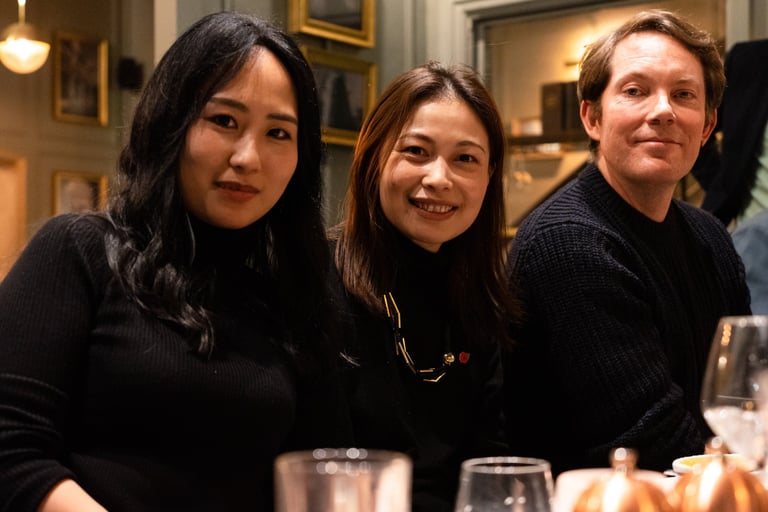Reflections on the Global China Workshop with REDEFINE & SGAIN
BLOG
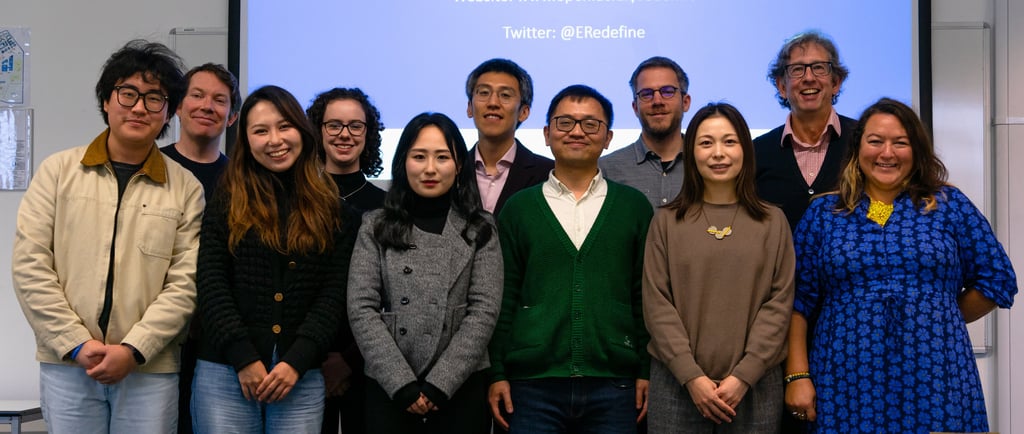

As a new PhD student in the Department of Social & Policy Sciences at the University of Bath and a recent addition to the SGAIN project team, I had the opportunity to attend the Global China Workshop with REDEFINE & SGAIN hosted at Bath on 6–7 November. This workshop brought together over a dozen scholars from institutions in the UK (University of Bath, Open University, and King’s College London) and China (Tsinghua University) to discuss research topics related to global China and to share our research experiences.
The workshop began with self-introductions, facilitated by Dr. Yixian Sun. Each participant shared their research background, interests, and motivations for studying Global China - we were also asked to mention a non-work-related goal for the coming year. This approach broke down barriers, setting a relaxed and enjoyable tone that challenged my previous perception of academic workshops as overly formal and intense.
Following introductions, Professors Giles Mohan and Yixian Sun provided a brief overview of the two main research projects associated with the workshop, REDEFINE and SGAIN. This gave us insight into each project’s research directions and methodologies, highlighting both the overlaps and distinctions between REDEFINE and SGAIN, and setting the stage for deeper academic exchanges and potential future collaborations. In the subsequent session, Dr. Yitong Ye (from SGAIN) and Dr. Samuel Rogers (from REDEFINE) shared innovative methodological approaches in Global China research.
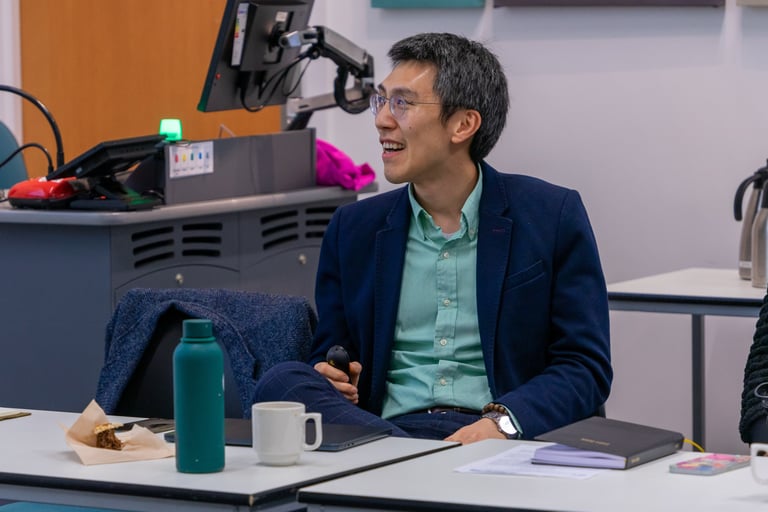

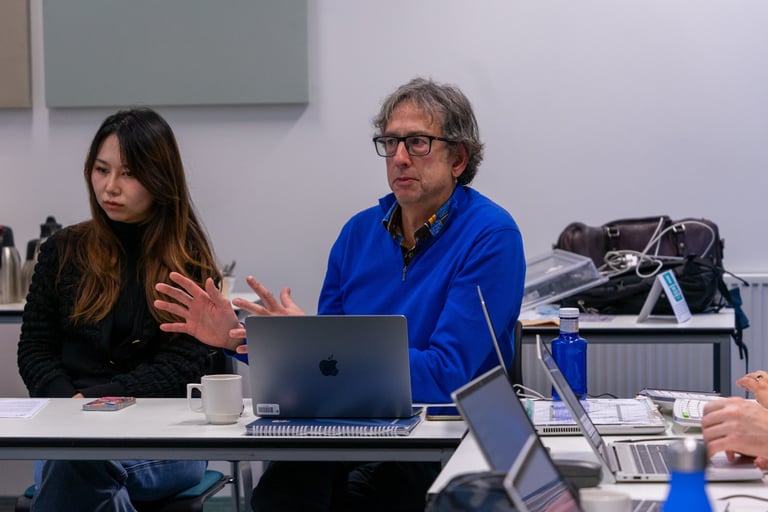

Dr. Ye presented her project, Seeing China from Different Perspectives: Analyzing Media Narratives on Chinese Overseas Investments’ Impacts, which illustrated the potential of artificial intelligence in analyzing narrative patterns. Her insights on using AI to efficiently extract precise information were inspiring for my own work. Dr. Ye also mentioned support from the CAUSAL MAP team for future SGAIN research. The co-founder of CAUSAL MAP, Dr. Steve Powell, joined our discussion online, emphasizing how this AI-driven tool for discourse analysis will play an important role in future studies.
Dr. Rogers provided an engaging introduction to process tracing by sharing a clip from the TV show Sherlock, where Sherlock Holmes analyzes a crime scene. Using this relatable example, he explained Process Tracing’s principles and demonstrated its application in studying Huawei’s involvement in Hungary’s telecommunications market. Dr. Rogers’s talk reminded me of my own experience learning process tracing during my master’s studies, offering fresh ideas on how to apply this method effectively in my research.
After a productive day of discussions, we enjoyed dinner together at Brown’s Restaurant in the Bath city center. This informal setting allowed for further academic exchange and fostered meaningful connections among participants as we shared a delightful evening in beautiful Bath.
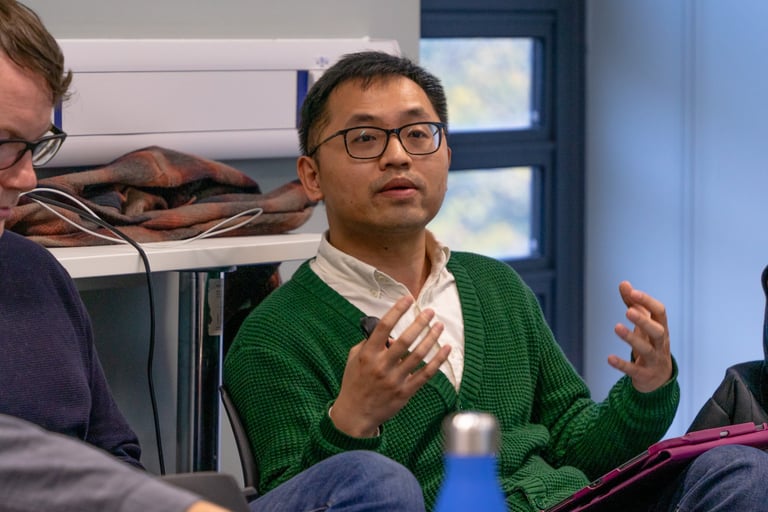

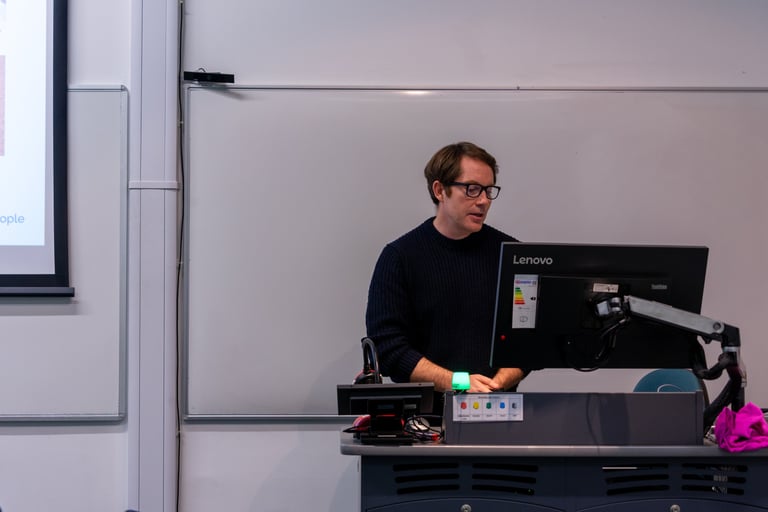

On the morning of the second day, we reflected on the previous discussions and dove into another crucial topic: opportunities and challenges in the research process. Dr. Weiwei Chen shared her experiences from fieldwork in Ethiopia, Angola, Manchester, and Duisburg, emphasizing the critical role of “relationships” in field research. She noted that embracing cultural differences, building trust with local participants, and identifying and meeting participants’ needs are essential to overcoming interview challenges. Dr. Philipp Katsinas and Dr. Ran Hu also discussed their experiences in building relationships with government elites and conducting field research, resonating with the audience and sparking further exchange on this topic.
Time flew by as our discussions continued, and before we knew it, the workshop was drawing to a close. Guided by Dr. Sun, we summarized the key insights from our discussions and brainstormed future research directions. The workshop was widely appreciated by all participants, and we look forward to the next gathering to share more advanced research findings, explore new collaboration opportunities, and contribute to a more accurate global understanding of China’s role in sustainable development.
